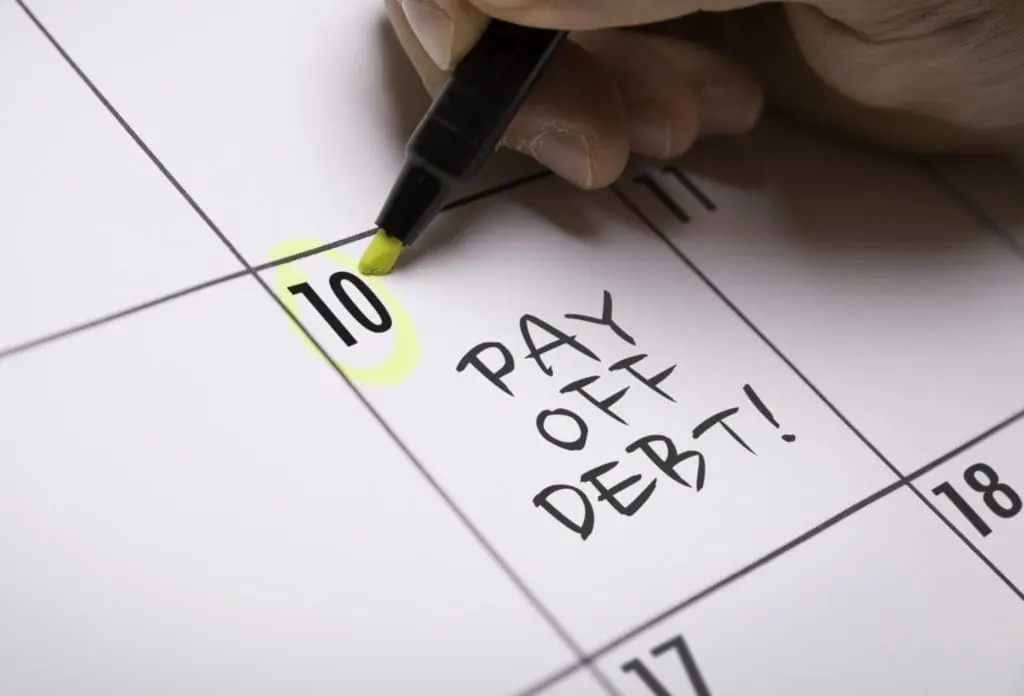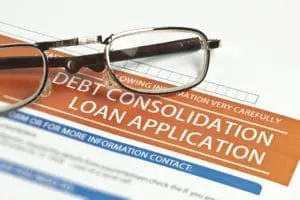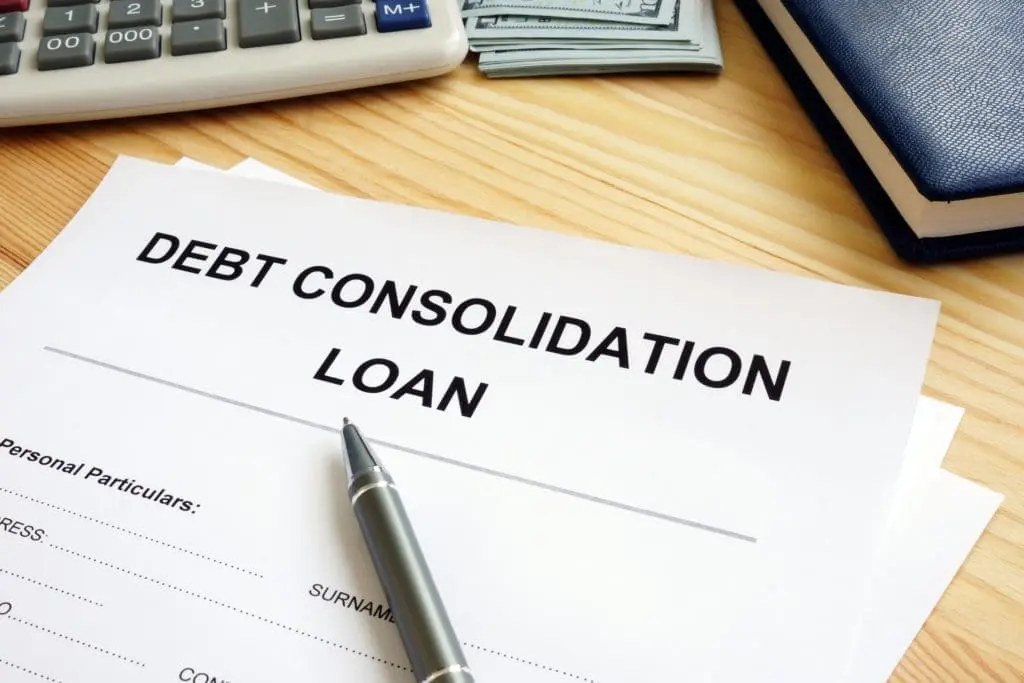
What Is Debt Consolidation?
The average American is walking around with more than $90,000 in debt. This number includes consumer debt products, from mortgages and credit cards to personal loans and student debt.
While taking on debt is considered a viable financial strategy in this day and age, it can also take a severe toll on you. If you have racked up more debt than you know how to handle, or you’ve been getting calls from debt collectors, it can leave you in an overwhelming state of stress and anxiety.
One way that you can work to get on top of your debt is through debt consolidation.
What is debt consolidation, exactly, and when is it a good idea? Let’s take a look at everything you need to know.
What Is Debt Consolidation?
Debt consolidation is when you take out a new loan to pay for existing debts and liabilities. With this method, debts can be combined into one condensed debt. Often, these new loans have more favorable payoff terms, including lower monthly payments, a lower interest rate, or both.
People might use debt consolidation as a financial strategy to deal with credit card debt, student loan debt, and other types of liabilities.
How Does Debt Consolidation Work?
A debt consolidation loan can pay off the debts of people who have several different kinds of debt. This consolidates all of the debts into one single liability.
Debt Consolidation can create a more straightforward process, where instead of managing many different monthly payments, people only have to make one payment each month. It also can mean that people pay less interest on their debt overall if they can secure a debt consolidation loan with a lower interest rate than their existing debts.
It is common for people to apply for a debt consolidation loan through a credit union, bank, or credit card company. Taking a loan from these sources is an excellent place to start when thinking about debt consolidation. This is particularly true if you have a great payment history and relationship with the institution.
If you can’t get a debt consolidation loan through this avenue, you can explore private lender options.
The Different Types of Debt Consolidation
It’s worth understanding the different types of debt consolidation loans that you can get. These are secured loans and unsecured loans.
A loan is a secured loan if assets are owned by the borrower backing it. This might be a car or a house. This means that the asset is collateral for the loan.
On the other hand, unsecured loans can be more difficult to obtain. This is because they are not backed by assets that act as collateral. These types of loans typically have lower qualifying amounts and higher interest rates.
However, it is common for the interest rate to be lower with either type of loan than normal credit card rates. The interest rates are also typically fixed, meaning that they don’t change over the period of time that you are repaying the debt.
There are several different ways that you can consolidate your debt into one single payment. Let’s take a look at some of the most common methods.
Debt Consolidation Loans
You can get debt consolidation loans from several different lenders, from traditional banks to peer-to-peer lenders. These loans are specifically designed for people who want to pay off a number of different high-interest debts.
Credit Cards
You can also get a new credit card to consolidate all of your credit card payments into one place. This can work out well if there is little or no interest charged on the debt for a period of time. Look for balance transfer cards that have an introductory 0% APR for a set period of time, which allows you to make monthly payments without paying interest for a certain amount of time.
There might also be a balance transfer feature on one of your existing credit cards. It’s important always to read the terms of any credit card or loan agreement, though, as there might be important information in the fine print.
HELOCs or Home Equity Loans
Some people use home equity lines of credit (HELOCs) as a way to consolidate their debt. This is when the equity in a home is used as the collateral that backs the loan. Because this is a secured loan, the interest rate can be much lower and can allow people to consolidate many different high-interest debts into one place.
Home equity loans have a fixed interest rate and a fixed monthly payment. HELOCs are a bit different, as they have a variable interest rate and work more like a credit card. Compared to some other debt consolidation loans, these loans often have larger loan amounts, lower interest rates, and more extended repayment periods.
Because your home is being used to back the loan, failure to pay back the loan on schedule could result in losing your home.

Student Loan Programs
The federal government offers many consolidation options for people who have student loans. This includes direct consolidation loans that the Federal Tract Loan Program provides. It’s important to note that private loans will not qualify for this program.
Cash-Out Refinance
When you take out a cash-out refinance, you are replacing your existing mortgage with a new mortgage. This new mortgage is larger than the current outstanding balance you have on your home. This means the difference between the two balances can be withdrawn to either consolidate your debt, improve your home, or for some other purpose.
It’s important to understand that with a cash-out refinance, a home equity loan, or a HELOC, failure to repay the debt can result in losing your home.
When Does It Make Sense to Consolidate Your Debt?
A number of things are required to ensure that a consolidation strategy will be successful. These include:
- Your cash flow is able to consistently cover your debt payments
- Your monthly debt payments (including your mortgage or rent) doesn’t amount to more than 50% of your gross income every month
- Your credit is good enough to qualify for a low-interest debt consolidation loan or a 0% interest credit card
- You will be able to pay off your consolidation loan within five years
It’s worth taking an honest look at your finances before you start applying for a debt consolidation loan or balance transfer credit card. If you aren’t going to be able to make regular payments to your new debt consolidation strategy, you will ultimately just be kicking the can down the road. There are other options that might be more applicable to your situation if you aren’t able to meet the criteria listed above.
When Is It Not Worth It to Consolidate Your Debt?
It’s important to understand that debt consolidation is not a magic solution to debt issues. It doesn’t deal with the habits that lead to debt creation in the first place. It also can’t solve your problems if you have more debt than you can ever conceivably pay off, even if your payment amounts are reduced.
It isn’t worth it to consolidate your debt if the amount of your debt is small. This means that you will be able to pay it off within six months to a year at the pace you are currently paying. In this instance, you’d likely only save a small amount of money by consolidating, and it likely isn’t worth the time or energy.
In these instances, you might want to utilize a debt payment method on your own, such as the debt avalanche method or the debt snowball method.
(Are you wondering how else you can work to pay off your debt? Check out these twelve easy ways.)
If the debt that you have accounts for more than half of your income, then it’s possible that debt consolidation isn’t the right option for you. You might want to seek debt relief instead.
There are other options to deal with debt, including debt settlement. You can learn more about the debt settlement process here.

What Are the Pros and Cons of Debt Consolidation?
It’s worth understanding the advantages and disadvantages of debt consolidation before applying for a loan or a credit card. Depending on your situation, it may or may not be a reasonable financial strategy for you.
Advantages of Debt Consolidation
If you have multiple debts with high monthly payments, interest rates, or both, debt consolidation can be a great tool. This is particularly true for people who owe $10,000 or more.
You can benefit from a lower interest rate and make one single monthly payment rather than multiple payments by getting a consolidation loan.
Debt consolidation can be a powerful tool to help you become debt-free sooner. However, it’s important to make sure that you don’t take out any additional debt in the process, as you could end up just digging yourself in deeper.
If you keep your new loan up to date, debt consolidation can also cut down on letters or calls from collection agencies.
Disadvantages of Debt Consolidation
It’s important to take a look at the payment schedule before taking out a debt consolidation loan. Even if the monthly payment and interest rate are lower, a longer payment schedule can mean that you will pay more overall. It’s a good idea to find out how long it will take for you to pay off your debts at their current interest rate so you can compare this to the consolidation loan you are considering.
There are specific issues to be concerned with if you are consolidating student debt. For example, it can lead to you losing special provisions such as interest-rate discounts and other rebates. Your tax refunds can also be garnished if you default on consolidated school loans.
Debt Consolidation and Credit Scores: What You Need to Know
Thoughtfully taking out a debt consolidation loan can also help you build your credit score in the future. If a consolidation loan helps you pay less money overall, it can help to pay off the debt quicker, leading to an improved credit score.
The higher your credit score is, the more attractive you are to future lenders.
That being said, it’s worth understanding that moving your existing loan to a new consolidation loan could initially reduce your credit score. This is because credit scores are calculated to favor longer-standing debts and have more consistent payment histories.
You should also be thoughtful about whether or not you should close the old credit accounts when you consolidate your loans. This is because it can raise your debt-to-credit utilization ratio if you get rid of other credit accounts in favor of one consolidated account.
Is It Time For You to Get Help With Your Debt?
Debt consolidation is just one of the financial strategies you can use to get yourself out of debt. At Consumer Protection Group, we offer a complete debt management service. We are dedicated to helping financially distressed people, aiding them in the journey to refinding hope and empowerment in their financial situation.
We are here to help protect consumers from the egregious collection practices that are all too common. We pride ourselves in providing a platform where consumers can learn about debt management, build better credit, and improve their quality of life.
Is your debt leaving you feeling like you can’t breathe? Are you ready to get on top of your debt situation? If so, contact us today.


